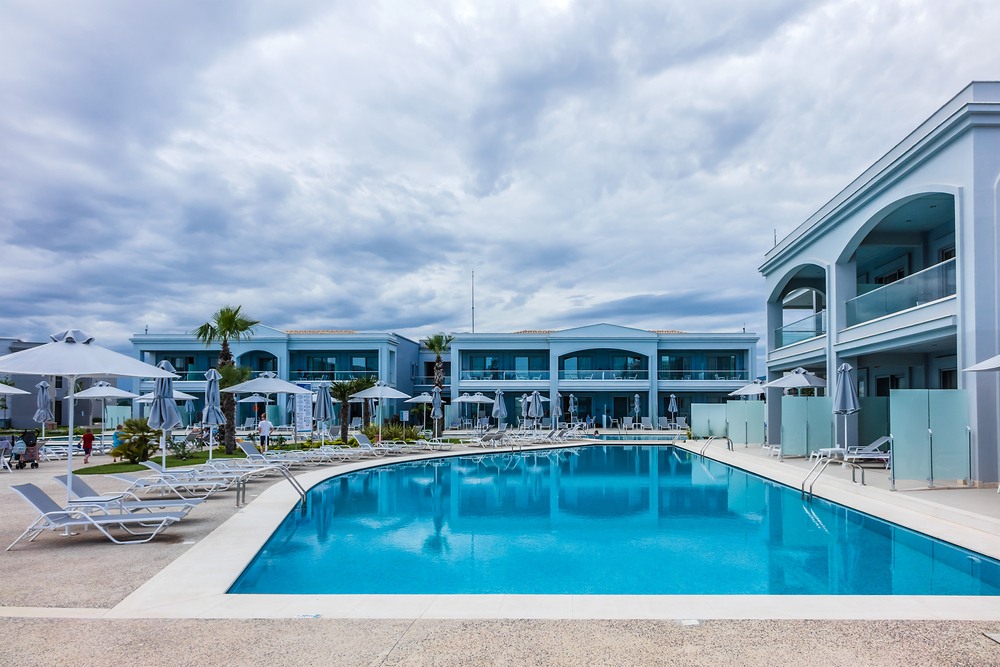Experienced Investor
A guide to investing in overseas hotel developments

If you’re looking for an overseas property investment, resorts or hotel developments might be worth considering, as long as you’ve considered the risks.
Investing in property can be lucrative but the landscape for buy-to-let landlords in the UK is becoming increasingly challenging.
Buy-to-let purchasers have already been hit with a hike in stamp duty, and now they face tougher affordability checks under plans outlined earlier this year by the Bank of England.
An alternative option for investors is overseas property. This comes with all the same advantages of investing in domestic property: you’re investing in a tangible asset, which has the ability to deliver lucrative returns. But you have the added benefit of picking from a wider range of locations, property types and if you want, you get a holiday home abroad.
Arguably the most popular route for overseas property investors is to buy a house, villa or apartment and rent it out privately. Sharing sites such as Airbnb and onefinestay have made this process a lot easier.
But this isn’t the only way. Investing in resorts or hotels is another option.
It’s worth mentioning at this point that the vast majority of overseas property investment is not regulated by the Financial Conduct Authority, so investors should proceed with caution. You’re unlikely to get your money back if something goes wrong.
However, if you do your due diligence, there are good reasons why investing in hotels can make sense.
Firstly, you’re outsourcing the ‘hotel-keeping’ to the experts. “Hotels are hands-free and hassle-free compared to private rentals, with a team of marketing experts from a hotel SEO company working to maximise your income alongside their own,” says Chris Nye from PropertyGuides.com.
Secondly, hotels are supported by local authorities, while private rentals are being attacked. “Major tourist destination countries are clamping down on the ‘sharing economy’ such as Airbnb,” says Nye.
“In Andalusia, failing to register your property for rentals can get you a fine of up to €150,000, and do you really want to get that deeply involved, or be that dependent for your investment returns, on the vagaries of local Spanish bureaucracy?”
Thirdly, you normally get the chance to stay in the hotel or resort as part of the package. Bigger chains will often allow you to swap nights between resorts. “All the benefits of time-share with few of the risks,” says Nye.
Finally, seasonality isn’t as big a problem as it is for private rentals as hotels have conference and convention business in the “shoulder” months of October, November, April and May.
There are, of course, risks – besides the fact that you’ll have no protection from the FCA, a fact that shouldn’t be underestimated as the market has traditionally been and remains infested by scammers.
A big concern is most developments are sold off plan, which is inherently riskier than if the property was already built. The biggest threat is the development never gets built and the developer disappears with your money.
Adrian Kidd, a financial planner at Radcliffe & Newlands, says: “When [buying off plan] on a resort-type property you need to be absolutely sure what, if any, guarantees are available.
“Contracts should provide bank guarantees on the money you pay over initially, otherwise you will likely lose all your money if the project fails. I would always advise you employ separate professionals to do the legal side. Do not use the people developers recommend as I have seen conflicts of interest arise here.”
Kidd recommends using professionals in the country you’re buying in but getting contracts reviewed by specialists in the UK.
There’s also the risk that currency markets will move against you when transferring money internationally in either direction, so you’ll need to budget for this or “buy a forward contract from a good foreign exchange dealer”, says Kidd.
Other risks include unforeseen local catastrophes, either natural or man-made, and the resort being a failure.
“The safest bet is to buy in a resort where a well-known international, luxury chain has signed a long-term deal to manage it,” says Nye.
“Cape Verde may look an outlying market and a risky proposition for property investment, but with its developments being managed by one of the most successful five-star hoteliers in the world, Meliá Hotels International, and one with a name to protect, the Resort Group’s investments there look much safer.”
PropertyGuides.com’s top tips to protect yourself:
- Past financial performance may not be proof of future performance, but it is with property. If buying an off-plan hotel room you would be brave to buy from someone who is new to the market. If they have done this kind of deal before and opened a hotel before, you should visit it. Indeed that is part of the fun of hotel investments!
- It is rarely sensible to buy when you’re on holiday, for obvious reasons, when you’re feeling good around sun, sangria and new friendships. Many undeserving people have made themselves rich from holidaying Brits. If the deal is good enough it will still be around a week after you get home and have had a chance to reconsider it in the cold light of Britain.
- Look for members of the Association of International Property Professionals (AIPP). The AIPP is not an official regulator and has little power if things go wrong, this being an unregulated market, but being a member of the AIPP is a good indicator that an overseas operator is reputable and it’s better than nothing.
To understand more about safe, secure and proven Overseas Property Investments. Assured Returns of 7% paid until completion Click Here